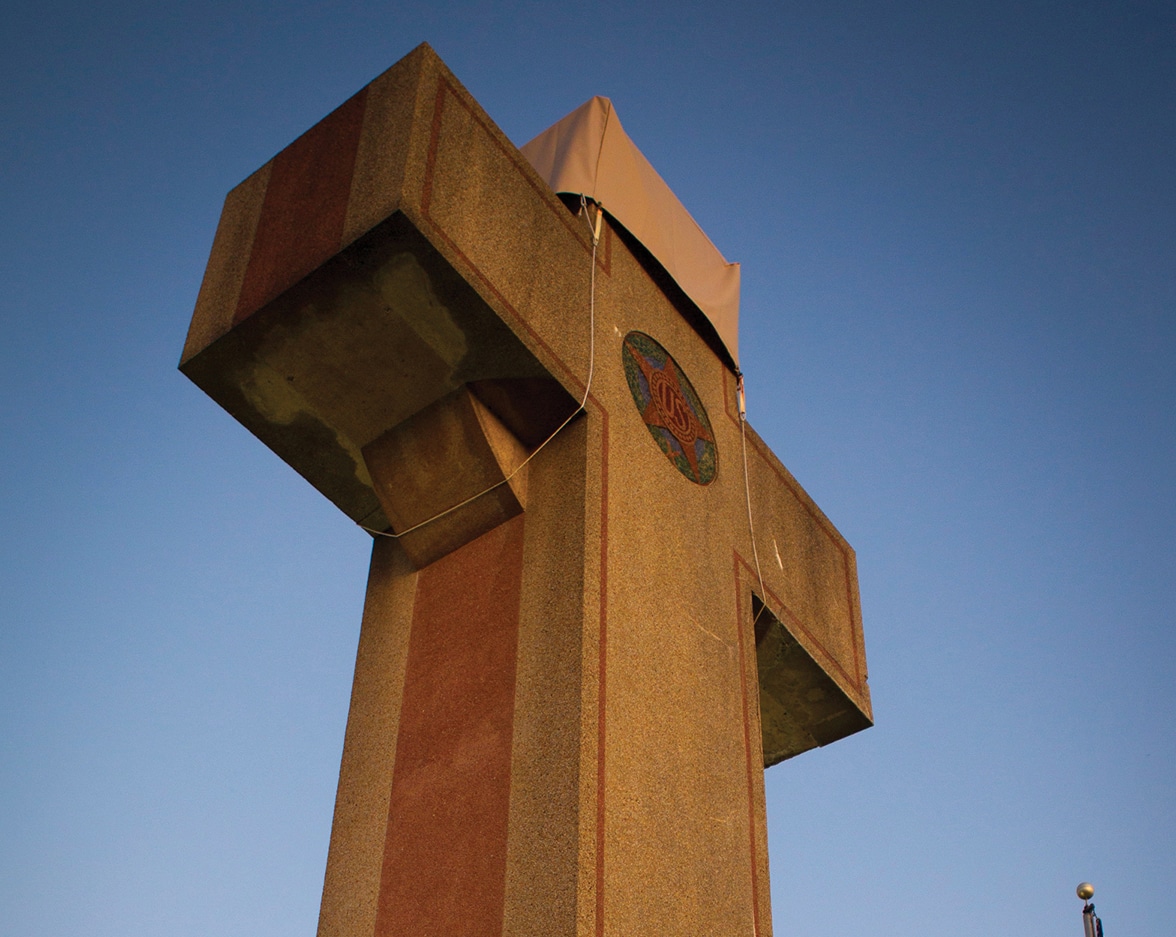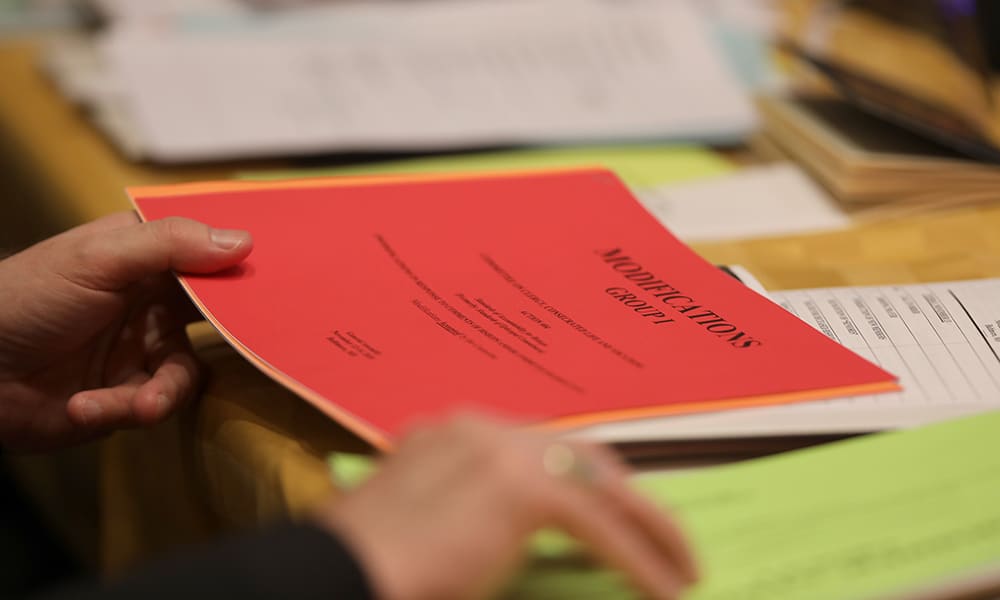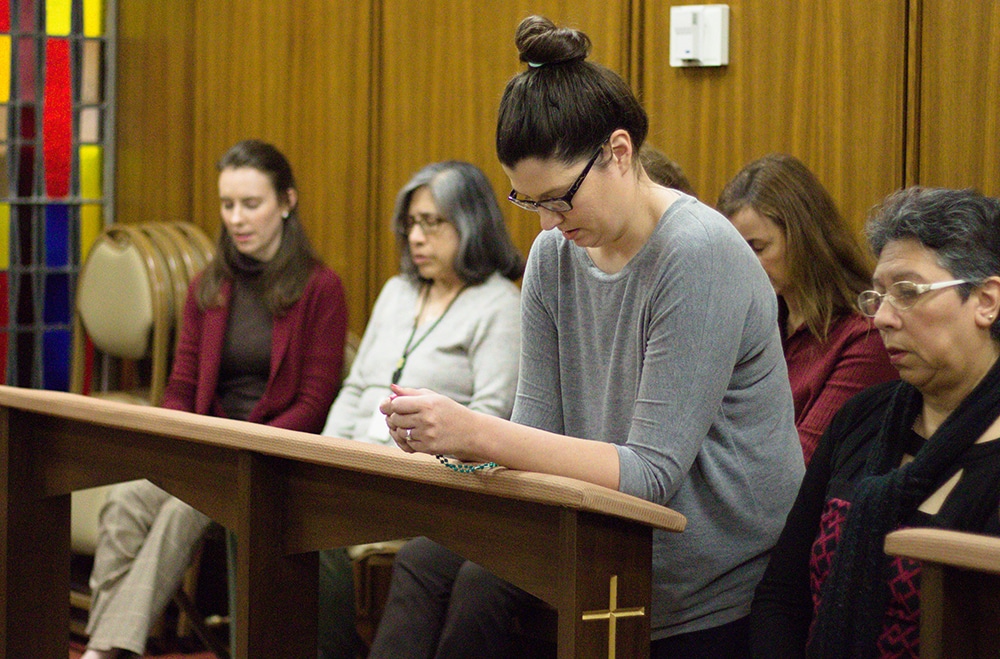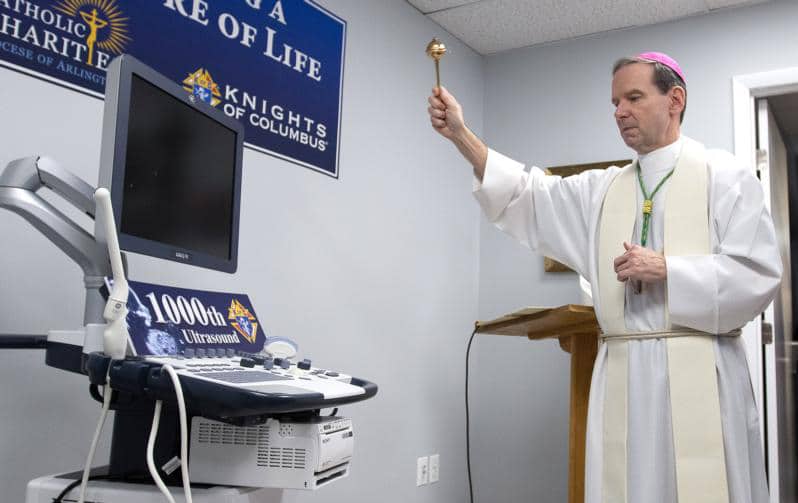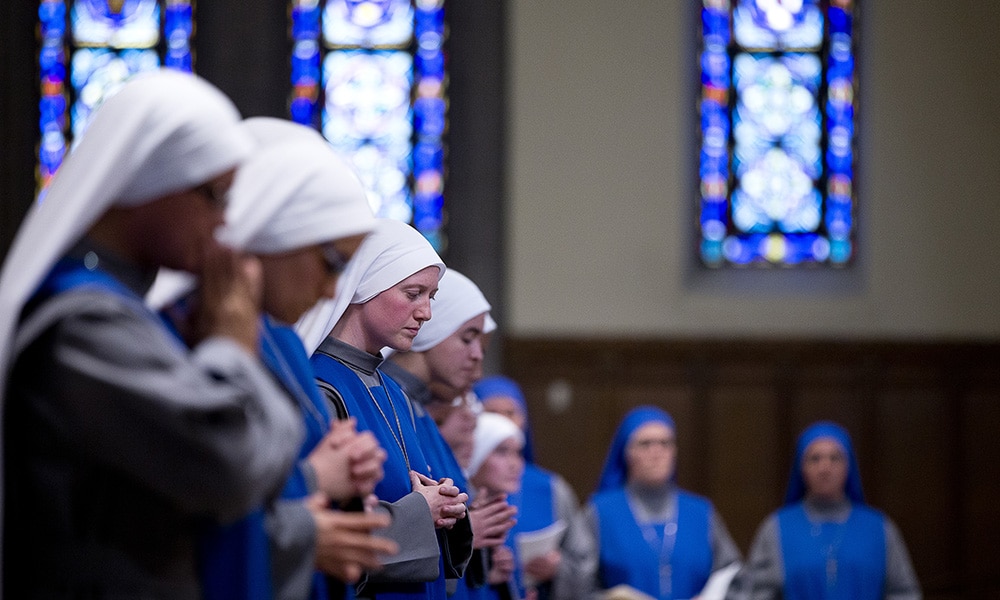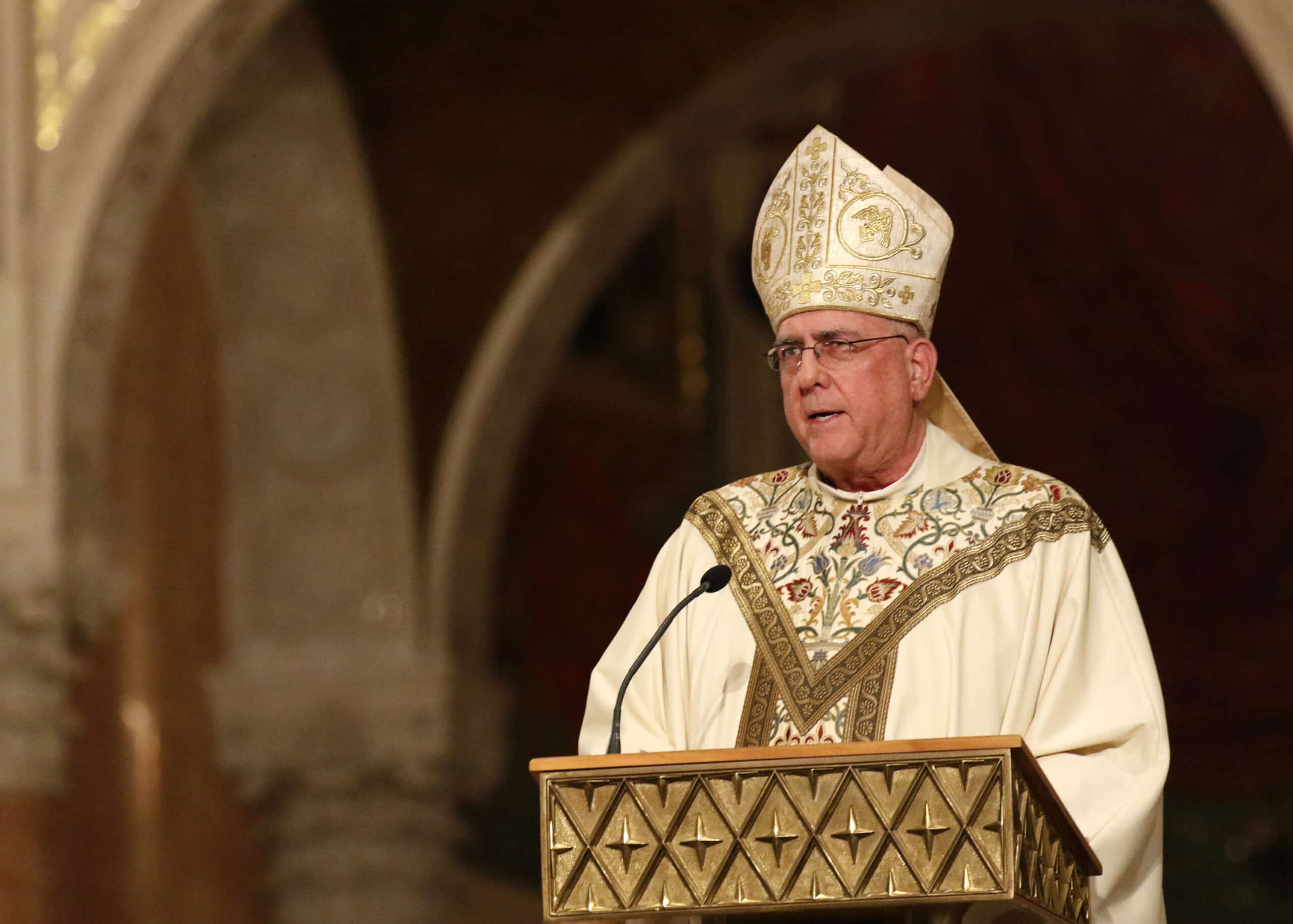These days, Father John Hollowell sits at his desk and pores over financial statements, trying to figure out how to cut almost 25 percent of his two Indiana parishes’ operating budgets for next year.
“McCarrick and friends are coming home to roost in fiscal year 2019-2020 at a parish near you,” Father Hollowell wrote to his 8,800 Twitter followers on Jan. 22.
In a recent interview with Our Sunday Visitor, Father Hollowell said he noticed “a pretty sharp decline” in parish weekend collections last summer, when the national clergy sexual abuse crisis exploded anew with revelations that former cardinal Theodore McCarrick was alleged to have harassed and molested minors and seminarians several decades ago.
“I totally get why people are doing that. For many people, money is the last form of protest they have to speak to Church authorities,” said Father Hollowell, the pastor of Annunciation Church in Brazil, Indiana, and St. Paul Church in nearby Greencastle.
‘Noticeable’ decline
Across the country, other Catholic parishes have seen fewer people donating to the Sunday collections in recent months. In some parishes, the faithful have continued to contribute to their regular collections in order to keep the lights on, but have withheld money from collections designated for their dioceses or the national bishops’ conference.
“People love their parish, but they’ve lost trust in the bishops,” said Father Jay Mello, the pastor of two urban parishes in Fall River, Massachusetts. Father Mello told OSV that many parishioners have told him they give less to the second collections that go to the diocese or national organizations.
| Canon Law and Collections |
|---|
|
While canon law says that the Catholic faithful are obliged to assist the Church to obtain the resources it needs to carry out its mission, and that the Church has “an innate right” to require those resources from the faithful, there is no canon that requires Catholics to drop a donation in the Sunday collection.However, canon lawyer Edward Peters in his blog last year cautioned Catholics who are considering withholding their money from collections designated for diocesan appeals. A good portion of that money is often shared with parishes, and a sharp decline in second collections could actually hurt parish operations, Peters wrote. “Across-the-board calls for Catholics to withhold donations ‘from the Church’ are subject to so many qualifications and exceptions and ramifications (intended or not) that, well, it seems difficult to defend such calls as being based on convincing reasons,” Peters added. |
“And that is noticeable,” Father Mello said.
Those financial decisions are consistent with how lay Catholics responded to the 2002 clergy sexual abuse crisis, according to data compiled by the Center for Applied Research in the Apostolate (CARA) at Georgetown University. Three CARA polls conducted in 2003 found that twice as many Catholics as before said that their giving had decreased from 2001 to 2002. About one-third of those respondents said the sexual abuse scandal was a major reason for why they gave less money to the Church. Other CARA polls indicated that the percentage of lay Catholics who had donated to diocesan financial appeals had declined from 38 percent in April 2002 to around 29 percent two years later.
“We know in the past that Catholics haven’t been affected in their giving to their parishes, but the abuse scandal has affected their giving to the diocesan collections. We have evidence of that,” said Mark Gray, the director of CARA Catholic Polls.
Varied responses
Contacted by OSV, several parish priests across the country gave differing responses to how the abuse scandals had impacted their finances. Some, like Father Mello in Massachusetts, saw little to no change in their parish collections.
“I haven’t — in fact, my collections have been up the last year, with the exception of last weekend because of the snow,” Father Mello said in mid-January. He added that pastors can mitigate some of the financial damage by being honest with their flocks.
“When I preached about (the scandals), I assured them that I shared their anger and frustration, and that this is not an ‘us vs. them’ thing. We’re all in this together,” Father Mello said. “That seemed to strike a chord with them. Many thanked me for saying that.”
Father Rick Stansberry, pastor of Christ the King Church in Oklahoma City, told OSV said he had not seen “much of a decrease” in general offertory.
“Where I have seen it is in giving to the archdiocese and other Catholic entities controlled by the larger Church,” said Father Stansberry, who noted, however, that the Archdiocese of Oklahoma City is still close to meeting its fundraising goal in an ongoing $80-million capital campaign.
“I have had a few people say they wouldn’t give to the archdiocese due to the scandals, but only a handful,” Father Stansberry said.
Long-term impact
According to the most recent figures provided by BishopAccountability.org, a website that tracks the bishops’ response to the clergy sex abuse scandals, the scandals to date have cost dioceses and religious orders in the United States more than $3.8 billion in total settlements. At least 16 dioceses have filed for bankruptcy protection since 2004.
In some 2018 diocesan financial reports and accompanying documents, Church officials readily admit that those settlements have impacted their ability to carry out the works of evangelization and ministry.
“To be certain, the crisis has had an ongoing impact on the Church’s ability to invest in its mission,” Bishop Frank J. Caggiano of Bridgeport, Connecticut, told the Fairfield County Catholic when the diocese released its 2018 financial report. “However, in acknowledging the steep costs, the diocese in no way questions the obligation and essential justice represented by the restitution to victims/survivors.”
The Archdiocese of St. Paul and Minneapolis, which filed for bankruptcy protection in 2015, last spring entered into a $210 million joint plan of reorganization to provide payments to sex abuse survivors while continuing the Church’s mission. The financial report for fiscal year 2018 indicated the archdiocese had a $20.6 million operating budget, but had to allocate $21 million to the bankruptcy settlement. Compare that to 2012, when the archdiocese reported $40.256 million in total revenue and $37.16 million in operating expenses.
“Anyone comparing this year’s financials with the 2012 figures will note that we are today a much leaner operation,” Archbishop Bernard A. Hebda of St. Paul and Minneapolis wrote in his column last December for The Catholic Spirit diocesan newspaper.
“While the needs of God’s people have remained constant if not grown, we now have a significantly smaller archdiocesan staff to respond to them,” wrote Archbishop Hebda, who thanked that staff for finding creative ways to enable the local Church “to maintain a high level of service with significantly fewer resources.”


